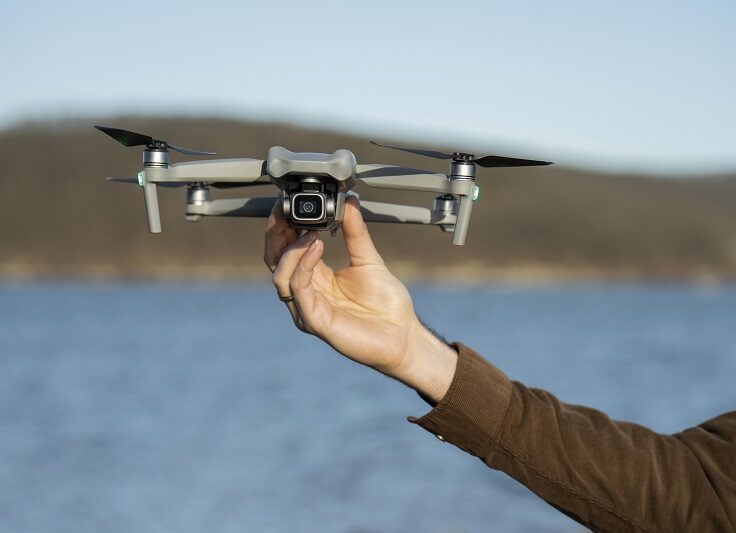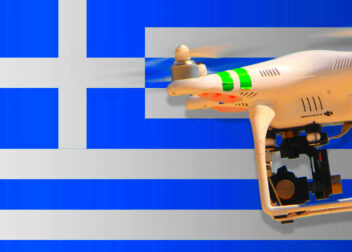Massachusetts Drone Laws and How They Impact Drone Operators
Drone usage has surged in popularity, leading to the development of specific laws to ensure safe and responsible flying. In Massachusetts, understanding drone laws is crucial for both recreational and commercial operators. These laws aim to protect privacy, safety, and airspace while allowing drone enthusiasts to enjoy their hobby. Whether you’re flying for fun or business, being aware of these regulations can help you avoid legal troubles and enhance your flying experience.
Overview of Drone Regulations in Massachusetts
Massachusetts has established a framework of regulations for drone operations, primarily governed by both state and federal laws. The Federal Aviation Administration (FAA) sets national standards, while state laws add further restrictions tailored to local needs. Here are the key aspects of these regulations:
- Federal Regulations: The FAA requires all drone operators to register their drones weighing over 0.55 pounds and adhere to specific guidelines for safe flying.
- State Regulations: Massachusetts has additional laws regarding privacy and drone use in state parks, schools, and other sensitive areas.
- Local Ordinances: Many cities and towns have implemented their own rules, so it’s essential to check local regulations before flying.
Staying informed about these regulations will help ensure a safe and enjoyable flying experience while minimizing the risk of fines or penalties.
Key Laws Affecting Drone Operators
Understanding the key laws that affect drone operators in Massachusetts is vital for compliance. Here are some essential laws to be aware of:
- Drone Registration: All drones over 0.55 pounds must be registered with the FAA. Failure to register can lead to fines.
- Flight Restrictions: Drones cannot be flown near airports, over crowds, or above 400 feet without special permissions.
- Privacy Laws: Massachusetts has strict privacy laws. Drones cannot be used to record individuals or private property without consent.
- Commercial Use: Commercial operators must obtain a Section 333 exemption or a Remote Pilot Certificate from the FAA to fly legally.
Understanding and following these laws not only helps operators avoid penalties but also contributes to the safe integration of drones into the airspace.
Permits and Licensing Requirements
Operating a drone in Massachusetts requires understanding the necessary permits and licensing. Depending on whether you’re a hobbyist or a commercial operator, the requirements can vary significantly. Here’s a breakdown:
- Recreational Flyers: If you fly drones for fun, you must register your drone with the FAA if it weighs over 0.55 pounds. No specific license is needed, but you must follow the FAA’s safety guidelines.
- Commercial Operators: For those flying drones for business purposes, a Remote Pilot Certificate from the FAA is required. To obtain this, you must:
- Be at least 16 years old.
- Pass the FAA’s Aeronautical Knowledge Test.
- Submit an application through the FAA’s Integrated Airman Certification and Rating Application (IACRA) system.
- Special Permits: Depending on the type of operation, you may need special permits. For instance, flying in controlled airspace or beyond visual line-of-sight operations requires additional authorization from the FAA.
Keeping your permits and licenses up to date is crucial. Regularly check the FAA website for any changes in regulations that might affect your drone operations.
Restrictions on Drone Operations
There are several restrictions that drone operators in Massachusetts must adhere to in order to fly legally and safely. Understanding these limitations is key to avoiding fines or more serious penalties:
- No-Fly Zones: Drones cannot be flown within a certain distance of airports, heliports, or military bases without special permission.
- Altitude Limitations: The FAA restricts drone flights to a maximum altitude of 400 feet above ground level to prevent interference with manned aircraft.
- Flying Over People: Commercial operators need a waiver to fly over crowds, while recreational users should avoid flying over people entirely.
- Night Operations: Flying drones at night is generally prohibited unless you have the necessary waivers and comply with specific lighting requirements.
- Weather Conditions: Operators must refrain from flying in adverse weather conditions, such as high winds or low visibility, to ensure safety.
Always check for local laws that might impose additional restrictions in specific areas, such as parks or urban environments, to ensure compliance.
Privacy Concerns Related to Drones
As drone usage increases, so do concerns about privacy. In Massachusetts, the laws aim to balance the benefits of drone technology with the need to protect individual privacy rights. Here are some important considerations:
- State Privacy Laws: Massachusetts has enacted laws prohibiting the use of drones to invade the privacy of individuals. This includes capturing images or video of private property without consent.
- Recording Restrictions: While flying, operators must be aware that recording someone without their permission could lead to legal action. Always seek consent if you’re unsure.
- Public Spaces vs. Private Property: Drones can be flown over public spaces, but operators must avoid capturing images of private property without permission. If you’re unsure, it’s best to err on the side of caution.
- Data Collection: Any data collected through drone operations should be handled responsibly. Ensure that it is stored securely and used in compliance with privacy laws.
Understanding these privacy concerns helps operators fly responsibly while respecting the rights of others, contributing to a more positive public perception of drone usage.
Penalties for Violating Drone Laws
Understanding the penalties for violating drone laws in Massachusetts is essential for every operator. Ignoring these laws can lead to serious consequences, which can impact your ability to fly legally. Here’s what you need to know:
- Fines: The FAA can impose hefty fines for violations, ranging from a few hundred to several thousand dollars, depending on the severity of the offense. For example, flying without proper registration can cost you around $1,100.
- Criminal Charges: In cases of reckless flying or violating no-fly zones, you could face criminal charges, which may result in jail time or additional fines. This is particularly true if your actions endanger others.
- Drone Seizure: Law enforcement has the authority to seize drones that are being operated illegally. If your drone is confiscated, retrieving it may involve legal proceedings and additional costs.
- Loss of Certification: For commercial operators, violating drone laws can lead to the revocation of your Remote Pilot Certificate, making it impossible to operate your drone for business purposes.
To avoid penalties, stay informed about current regulations and always fly responsibly. It’s better to double-check the rules than to face the consequences later!
Resources for Drone Operators in Massachusetts
Being a responsible drone operator means staying informed about regulations and best practices. Thankfully, there are numerous resources available to help you navigate the world of drone flying in Massachusetts:
- Federal Aviation Administration (FAA): The FAA website is the go-to source for national drone regulations, registration requirements, and safety guidelines. Regularly check for updates.
- Massachusetts Government Resources: The Massachusetts Executive Office of Public Safety and Security provides information on state laws and regulations specific to drone operations.
- Local Drone Clubs: Joining a local drone club can provide valuable networking opportunities, advice, and support. Clubs often hold events where you can learn more about flying safely and legally.
- Online Forums and Communities: Websites like Reddit and specialized drone forums are excellent places to ask questions, share experiences, and learn from other drone enthusiasts.
- Educational Courses: Many organizations offer courses for drone operators, covering everything from basic flying skills to advanced safety protocols and legal compliance.
Utilizing these resources can help you become a knowledgeable and responsible drone operator in Massachusetts!
Frequently Asked Questions
As a drone operator in Massachusetts, you likely have questions about the regulations and best practices. Here are some frequently asked questions that may help clarify your concerns:
- Do I need to register my drone? Yes, if your drone weighs more than 0.55 pounds, you must register it with the FAA.
- Can I fly my drone at night? Flying at night is generally prohibited unless you have the necessary waivers and your drone is equipped with proper lighting.
- What are the penalties for flying in a no-fly zone? Violating no-fly zones can result in significant fines and possible criminal charges, depending on the circumstances.
- Do I need insurance for my drone? While it’s not a legal requirement, having liability insurance for your drone can protect you financially in case of accidents or damages.
- Where can I find local drone regulations? Check your local government’s website or contact local authorities to learn about specific regulations in your area.
If you have more questions, don’t hesitate to reach out to local drone clubs or forums where experienced operators can provide guidance!
Conclusion on Massachusetts Drone Laws
Understanding Massachusetts drone laws is crucial for both recreational and commercial operators. With a growing number of drone users, these laws help ensure safety, privacy, and responsible flying. By staying informed about the registration process, required permits, and specific restrictions, drone operators can enjoy their hobby or business while complying with legal requirements. Remember, ignorance of the law is not an excuse, and violations can lead to significant penalties. As you navigate the skies, prioritize safety and respect for others’ privacy. This proactive approach will not only protect you from legal trouble but also contribute to a positive image of drone use in your community.

